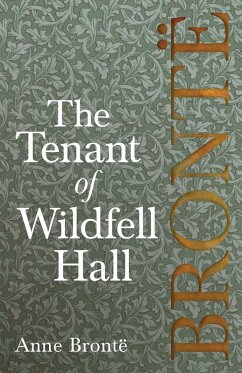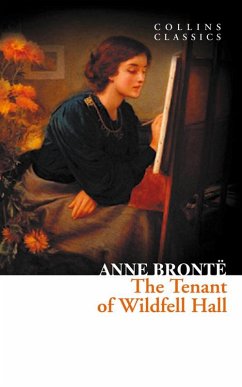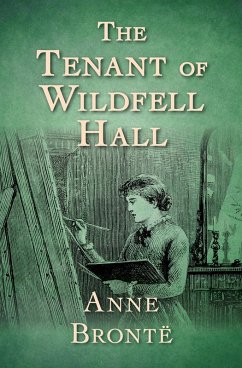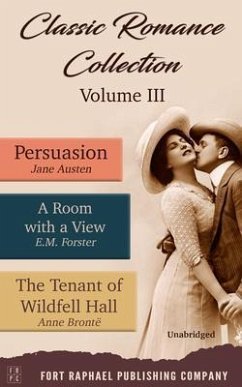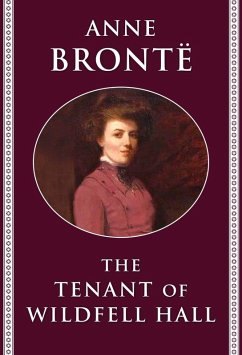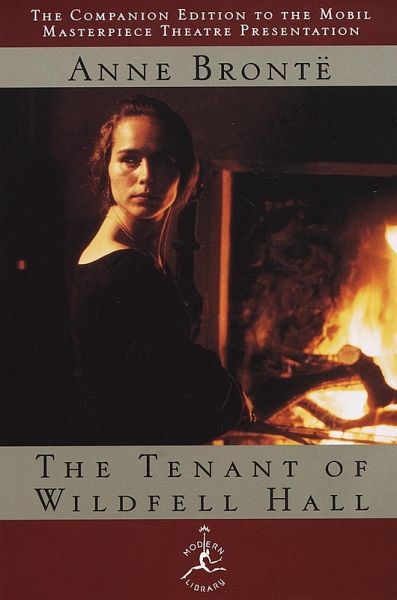
The Tenant of Wildfell Hall (eBook, ePUB)

PAYBACK Punkte
3 °P sammeln!
Over a short period in the 1840s, the three Brontë sisters working in a remote English parsonage produced some of the best-loved and most-enduring of all novels: Charlotte's Jane Eyre, Emily's Wuthering Heights, and Anne's The Tenant of Wildfell Hall, a book that created a scandal when it was published in 1884 under the pseudonym Action Bell. Compelling in its imaginative power and bold naturalism, the novel opens in the autumn of 1827, when a mysterious woman who calls herself Helen Graham seeks refuge at the deso-late moorland mansion of Wildfell Hall. Bronte's enigmatic heroine becomes the...
Over a short period in the 1840s, the three Brontë sisters working in a remote English parsonage produced some of the best-loved and most-enduring of all novels: Charlotte's Jane Eyre, Emily's Wuthering Heights, and Anne's The Tenant of Wildfell Hall, a book that created a scandal when it was published in 1884 under the pseudonym Action Bell. Compelling in its imaginative power and bold naturalism, the novel opens in the autumn of 1827, when a mysterious woman who calls herself Helen Graham seeks refuge at the deso-late moorland mansion of Wildfell Hall. Bronte's enigmatic heroine becomes the object of gossip and jealousy as neighbors learn she is escaping from an abusive marriage and living under an assumed name. A daring story that exposed the dark brutality of Victorian chauvinism, The Tenant of Wildfell Hall was nevertheless attacked by some critics as a celebration of the same excesses it criticized. 'Every reader who has felt the power of Jane Eyre and Wuthering Heights comes, sooner or later, to The Tenant of Wildfell Hall,' observed Bronte scholar Margaret Lane. 'Anne Bronte, with all the Bronte taste for violence and drama, and with her experience of the same rude scenes and savage Yorkshire tales that had fed the imaginations of her sisters, did not shrink. She used the material at hand, and shaped it with singular honesty and seriousness....Anne is a true Bronte.'
Dieser Download kann aus rechtlichen Gründen nur mit Rechnungsadresse in A, B, BG, CZ, D, DK, EW, E, FIN, F, GR, HR, H, I, LT, L, LR, NL, PL, P, R, S, SLO, SK ausgeliefert werden.




